Addressing Unqualified Health Advisors: A Public Health Perspective
VerifiedAdded on 2023/06/04
|5
|1003
|275
Essay
AI Summary
This essay critically examines the detrimental effects of unqualified health advisors on communities, particularly focusing on the risks associated with receiving health advice from individuals lacking proper qualifications. The author, a future health officer, employs the principles of human dignity and the common good to analyze the problem and propose actionable solutions. These solutions include advocating for government licensing of health advisors, enhancing training for health professionals, and raising community awareness to distinguish between qualified and unqualified sources of health information. The essay also emphasizes the importance of establishing accessible avenues for seeking reliable health advice and implementing measures to monitor and regulate health advisory services, ultimately aiming to safeguard public health and uphold ethical standards in healthcare communication. The essay references key concepts from Catholic Social Teachings and relevant literature to support its arguments.
1 out of 5
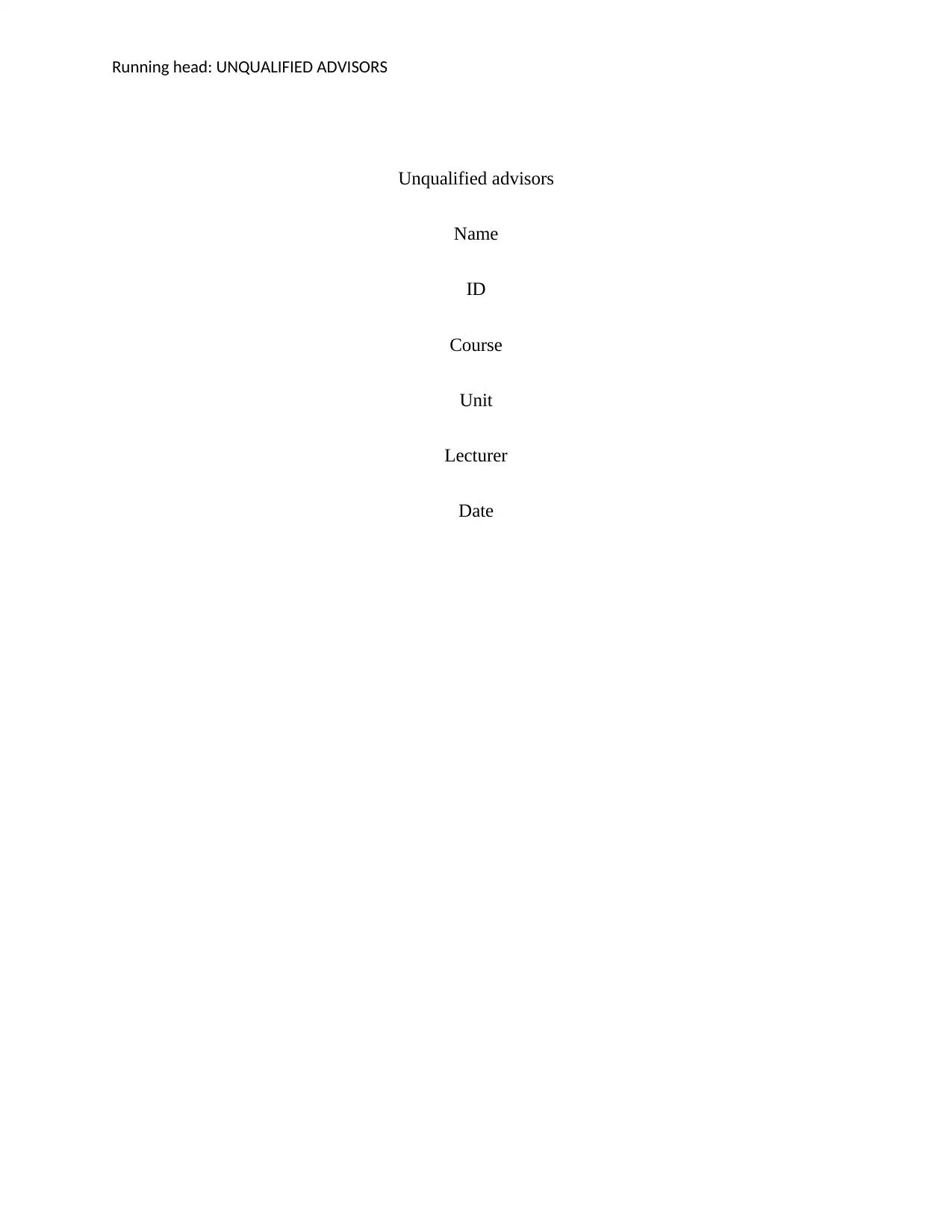
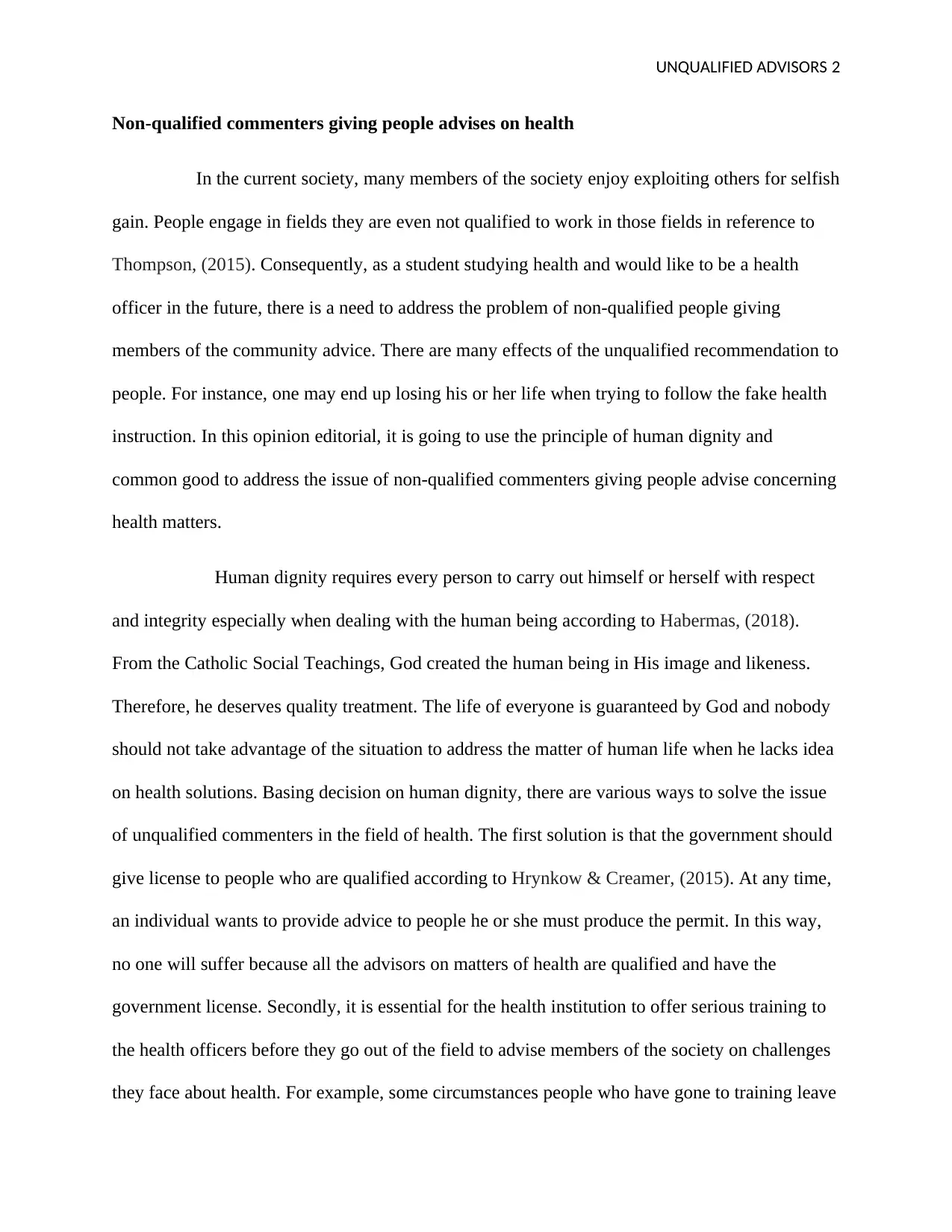
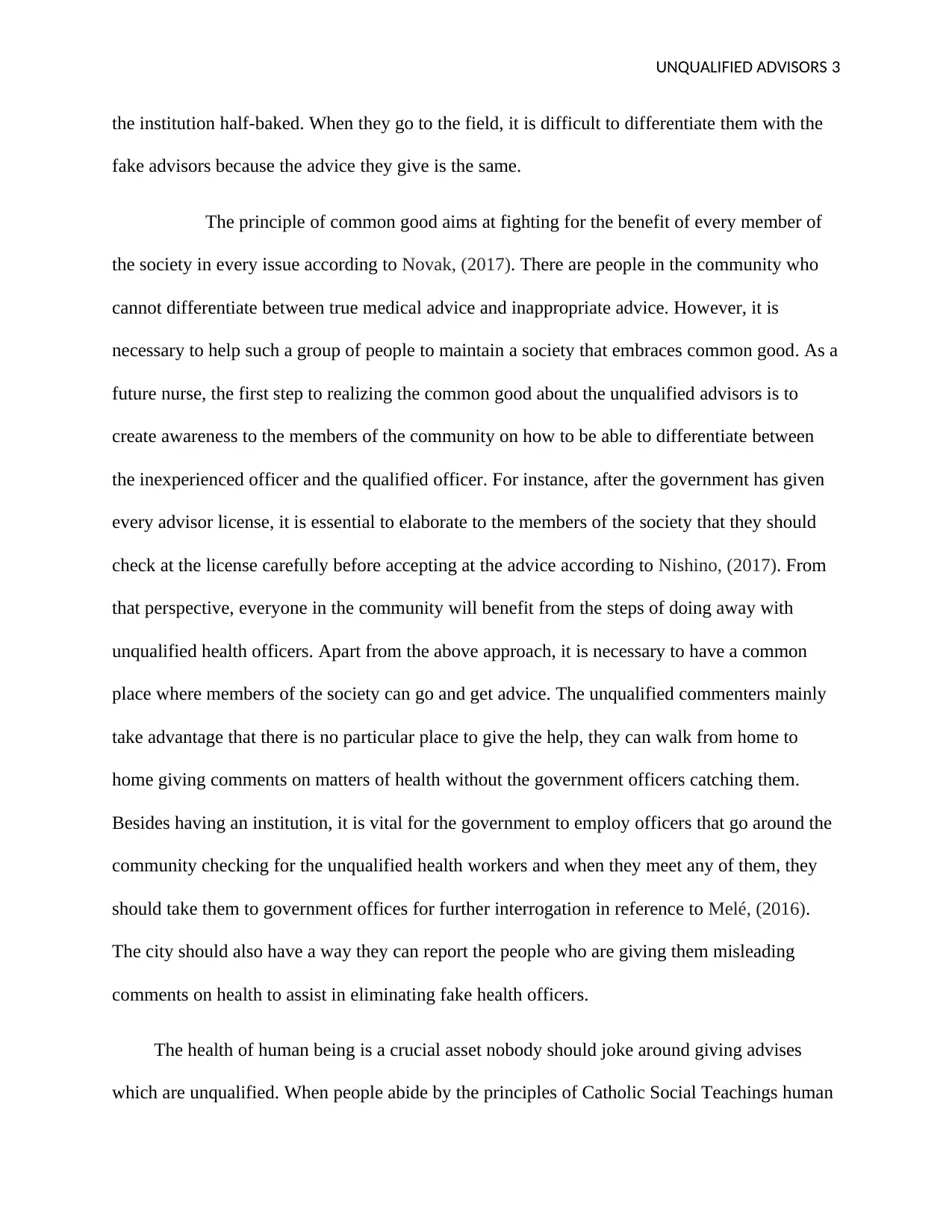

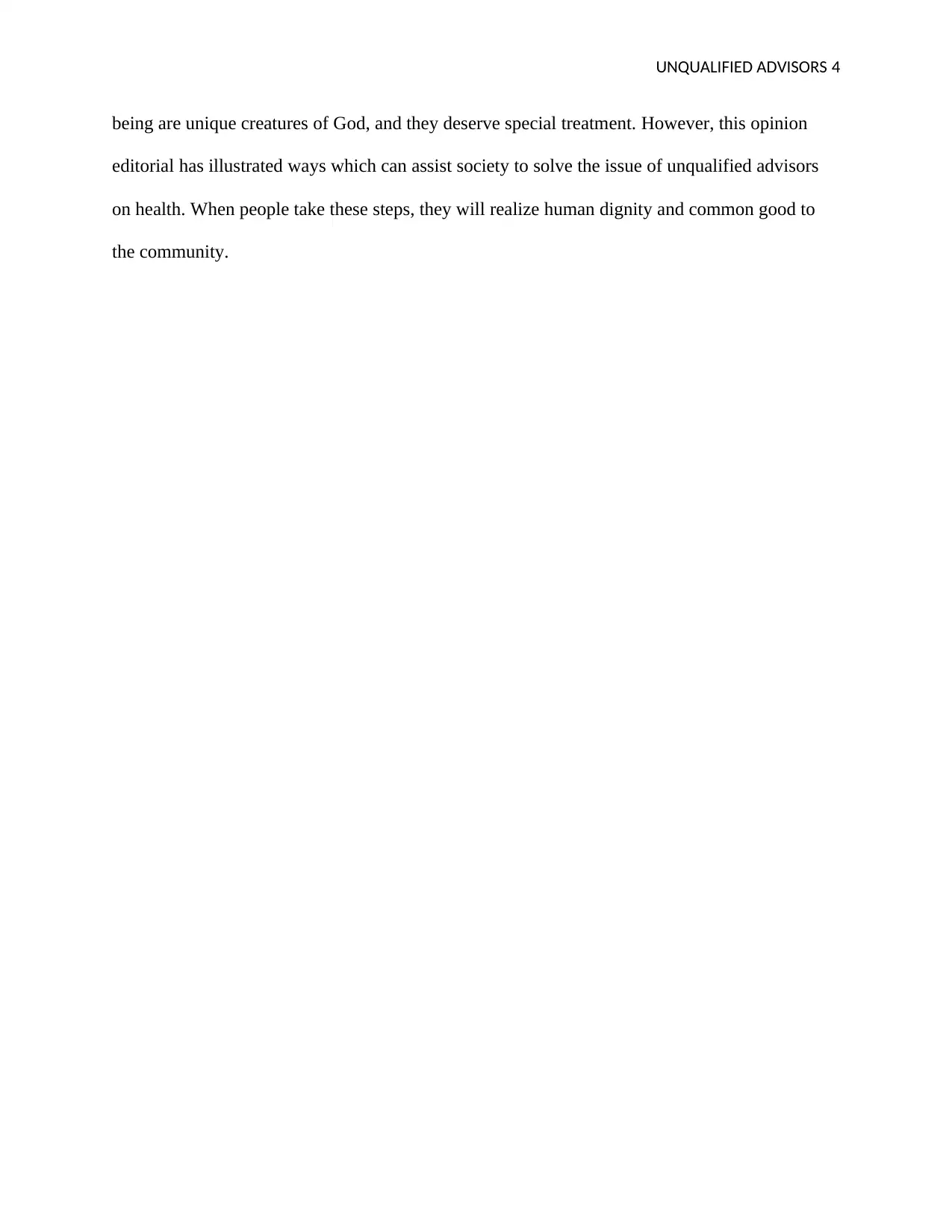
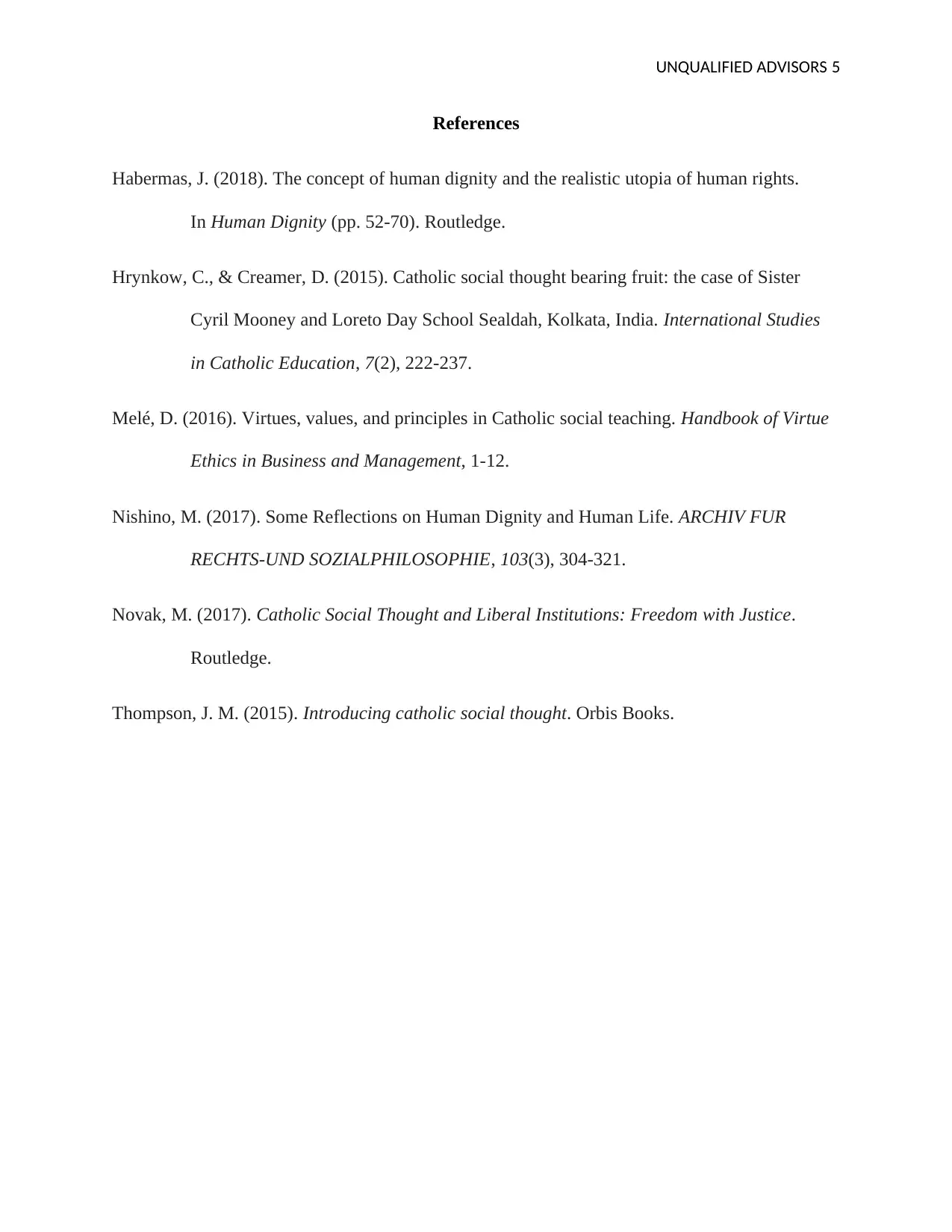

![[object Object]](/_next/static/media/star-bottom.7253800d.svg)